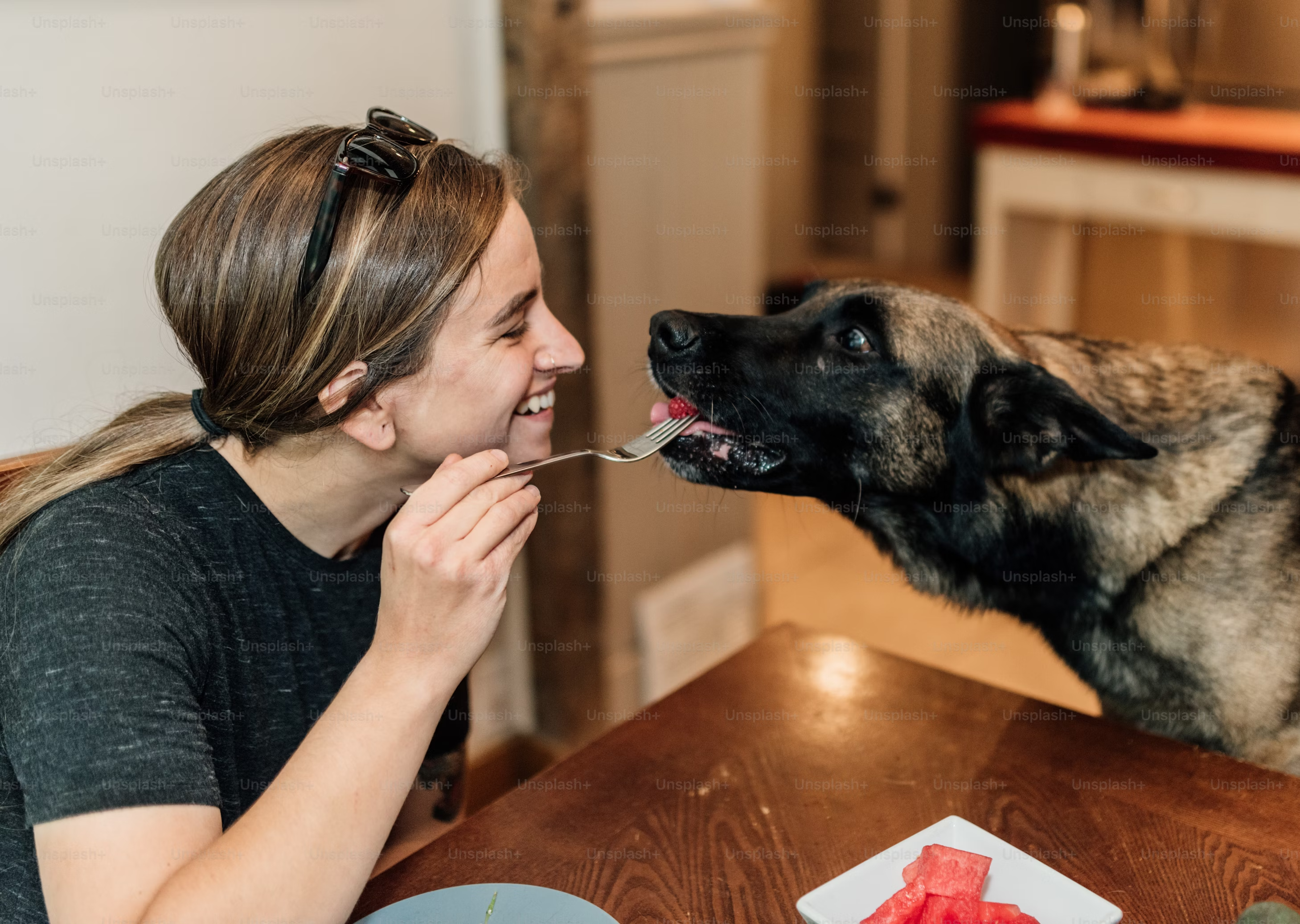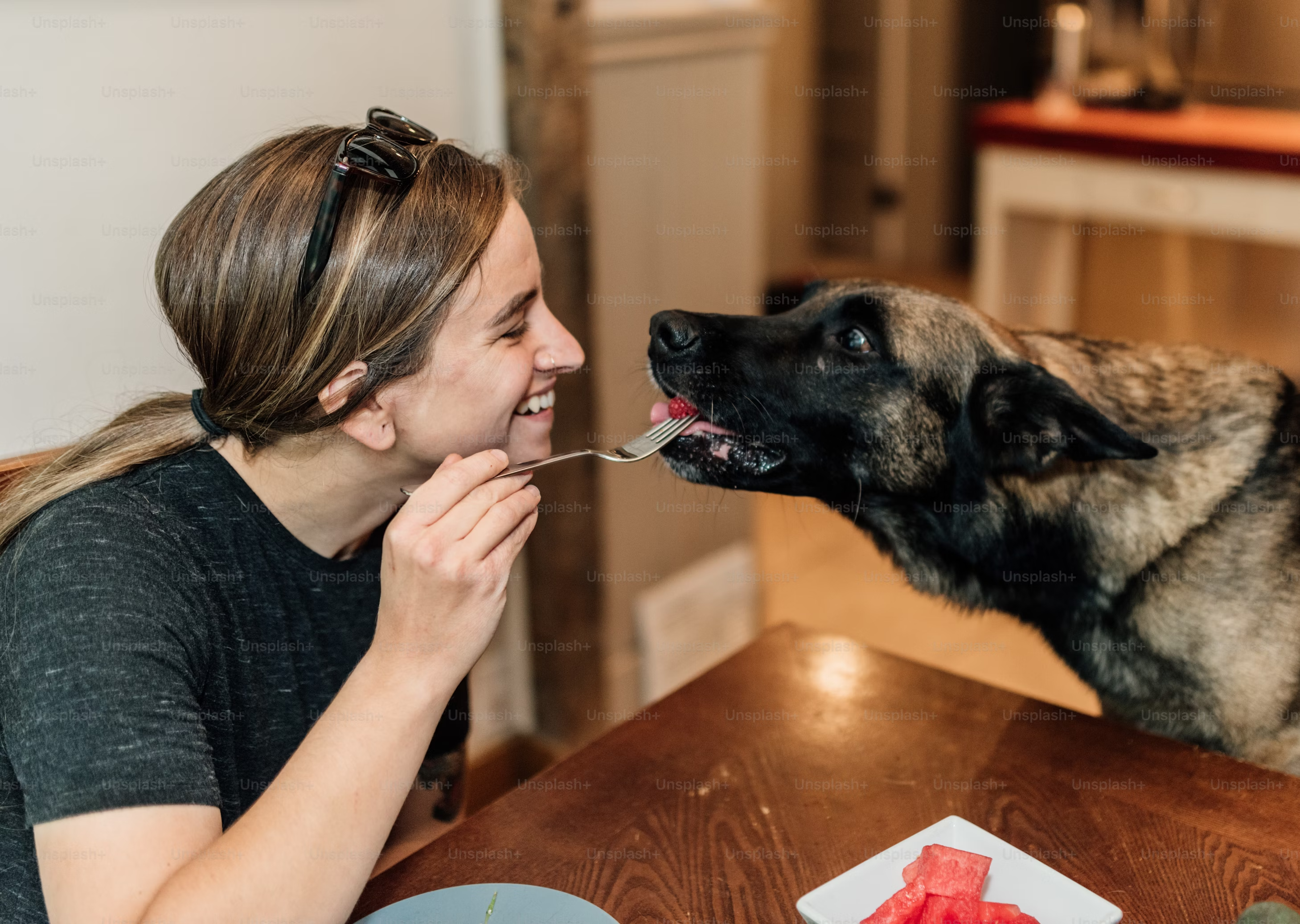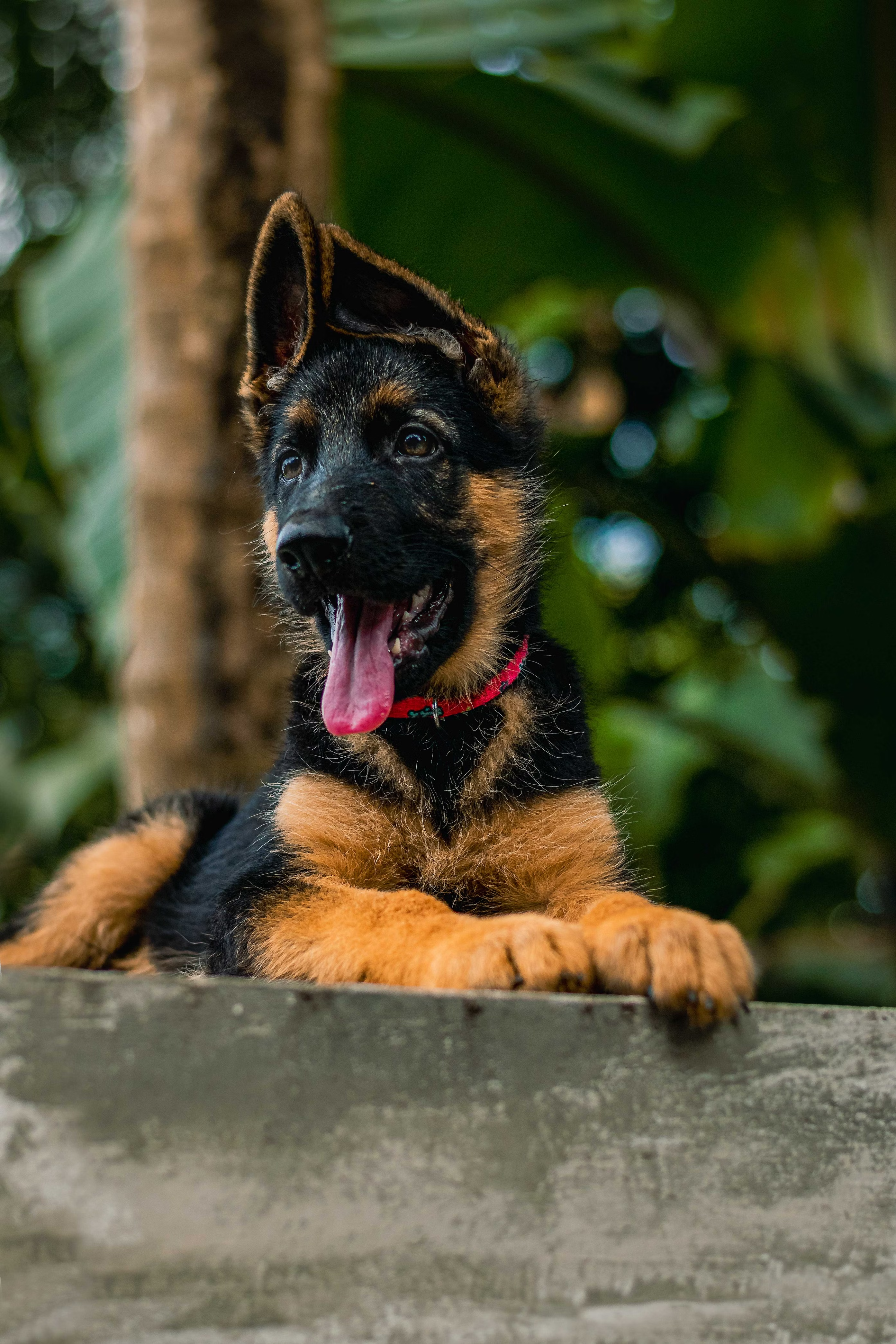
Why German Shepherds Not Eating: Complete Common Reasons and Solutions
German Shepherds are intelligent, loyal, and have an excellent, robust physical appearance. Whenever your dog suddenly stops eating, this can be quite a worrying feeling for any owner. A German Shepherd’s appetite is susceptible to medical issues and environmental changes.
In this article, we will discuss why your German Shepherd is not eating and how to treat this problem. We will also discuss key German Shepherd care tips, how to properly care for a German Shepherd and the ideal diet for the German Shepherd and mare.

Why Is My Dog Not Eating Food?
Sometimes, German Shepherds do not show interest in foods. However, there are a significant number of causes for this. Proper identification of those causes will lead to a solution.
1. Poor Health: Your dog might not eat due to loss of appetite, which is the most common cause. There could be digestive problems, infections, or even serious problems like kidney disease. Hence, seek a vet’s opinion as soon as possible.
2. Dental Issues: Dogs also have tooth and gum aches like humans. Even if your German Shepherd suffers from dental problems, including gums and broken teeth, they could easily avoid eating because of this sharp pain.
3. Behavioral Problems: A German Shepherd might simply stop eating for a variety of reasons, such as anxiety, stress, or depression. Changes in routine, environment, or an absent loved family member can change your dog’s interest in food.
Behavioural issues are actually usually solved by maintaining a stable and positive environment for your pet, which is just one of the different factors involved in caring for a German Shepherd. this might be a potential reason for you dog to not eating.
4. Rotten Smelling Food or Loss of Appetite: A German Shepherd may not eat food that smells awful or, perhaps, just does not enjoy the taste. Proper German Shepherd care ensures fresh and quality meals.
5. Overfeeding Treats: Treating your dog is important, but he shouldn’t be allowed to indulge too much, which might lessen his interest in being hungry for regular meals. If your German Shepherd eats too many treats or table scraps, it is likely to be interesting at mealtime.
6. Hot Weather: Just like humans, canines also stop eating when it is extremely hot. If you have noticed that your German Shepherd does not eat much in this hotter time of the year, it could be because of heat. Maintain them cool and hydrated while following German Shepherd care tips.
How Long Can a German Shepherd Go Without Eating?
German Shepherds are robust animals, but like any dog, they can’t survive without food for too long. A healthy German Shepherd might be able to survive for three to five days, though it should not be left that long without food.
On the third day or during that timeframe, they should ensure they drink lots of water. Dehydration is much deadlier than starvation, especially if the temperatures are hot.
As soon as the puppy or older dog refuses to eat for more than 48 hours, you should consult a veterinarian. The time frame for puppies is shorter, and due to its size and metabolism, the puppy should not go more than a day without eating.
A loss of appetite for longer than a day or two can signal that something is wrong and immediate attention must be given to ensure proper care of the German Shepherd.
The dog’s health always comes first, above everything else, and if the eating habits change greatly, a consultation with a vet will come in handy.
How Can I Get My German Shepherd to Eat?

If your German shepherd does not want to eat, don’t worry; there are steps you can undertake to encourage him to regain his appetite:
1. Balanced Diet: Provide German Shepherds with a well-balanced diet, and then the dog should eat regularly. Switch to a high-quality food brand that best suits their nutritional needs. Ensure the food contains a good balance of proteins, fats, and carbohydrates.
2. Mix Wet and Dry Food: Mix Wet and Dry Foods Sometimes, adding a little bit of wet food into dry kibbles will make the food quite palatable for your German Shepherd. The moisture and flavors from the wet food can enable your dog to look forward to even more food, especially if your dog is fussy.
3. Treats on Reducing: Maybe reducing treats will make your German Shepherd more eager for the right meals that have been assigned to them. This is because it is a sure result that numerous treats or portions of food at the table will always minimize the need for healthy food intakes.
4. Hand Feeding: There might come times when your German Shepherd is anxious or ailing. This can restore their appetite through hand feeding. Most of the time, it lets them achieve closer bonding and dissipated stress related to feeding.
5. Pre-Eating Exercise: Exercise can trigger your German Shepherd’s appetite. A few minutes of good walking or playtime before feeding can burn up some energy, thus increasing the likelihood of him eating well, making it another good German Shepherd care tip.
6. Feed Warm: Hot food also has a deeper aroma and is better appreciated. Make sure that the food is not too hot to put in his bowl.
Check out Common Health Issues in German Shepherds. Full Guide with Preventions . Understanding health issues and identifying might help you to get you dog eating.
What Food is Best for German Shepherds?
Feeding a German Shepherd is rather controversial, and there are always debates about what is best for it.
There is, however, an agreement that whatever you give to your German Shepherd, make sure it is made from high-quality beef. Generic beef might damage your German Shepherd’s digestive system and lead to diseases.
A good German Shepherd’s diet should basically consist of high protein content and low fillers. Here are the key ingredients that form the perfect diet for German Shepherds:
1. Protein: Protein is essential for muscle building and overall health. DO look for dog food that lists meat as the first ingredient; for example, chicken, beef, or fish. A protein-rich diet is the main requirement of how to take care of German Shepherds.
2. Fats: Healthy fats are needed. For example, omega-3 and omega-6 fatty acids help support healthy skin, coats, and brains. They also fuel an energetic German Shepherd.
3. Carbohydrates: Provide your German Shepherd with some sources of good quality carbs: sweet potatoes, brown rice, or oats. Avoid too much corn or soy fillers.
4. Vitamins and Minerals: Given that the healthy maintenance of a German Shepherd is so crucial, particularly about the bones and joints, good quality vitamins such as Vitamin E and good quality minerals like calcium, do integrate well with a German Shepherd’s balanced diet.
5. Raw or Homemade Diet: A number of German Shepherd owners feed the dogs a raw or homemade diet. This can provide great nutritional benefits to the dog, but thorough planning is essential to ensure that all nutrients are met. Consultation with a veterinarian over meal plans is advisable for this method.
In order to dive deep on food that must be given to your Dog check out What Does the German Shepherd Eat? Complete Guide . Mixing food that your dog loves can also solve the problem of your dog not eating.
Can I Provide Milk to My German Shepherd?
While milk is not poisonous to dogs, most often it is not recommended that German Shepherds be given a lot of it. Most breeds of dogs, such as the German Shepherd, are also lactose intolerant; they cannot digest the sugars present in milk and dairy products.
Symptoms of lactose intolerance include stomach upsets, diarrhea, and bloating. Milk can actually be part of a German Shepherd diet but should only be ingested in very little quantities and observed to see how well the dog reacts.
Instead, you can offer cucumbers or carrots, which are full of water and nutrients. So they will not suffer even if they are sucking on it.
How Many Times Should a German Shepherd Eat a Day?
Feeding a German Shepherd depends upon the age of a German Shepherd, the energy level, and the health condition. Generally:
1. Puppies: Feed the German Shepherd puppies three to four small meals a day. Their high energy levels, and bodies have to stay constantly nourished.
2. Adults: Adult German Shepherd dogs can have two meals a day, one in the morning and one at night, since it maintains their metabolic balance, providing them with the energy throughout the day.
3. Old Dogs: In the case of old dogs, the feeding schedule can be changed to a lot of frequent small meals for the older German Shepherds because their digestion and energy are likely to undergo changes. It will also limit conditions that are common in larger breeds such as bloat.
Plan your feeding schedule well in consistency with your German Shepherd. Feeding your dog at a regular time helps keep the digestive track regular and develops discipline and structure, which are some of the things to remember when learning how to take care of a German Shepherd. Any imbalance in food might lead your dog start disliking its meal and stop eating food.
Conclusion
A complete neglect of food by your German Shepherd can be worrying. The reasons for this could vary and are numerous. It is just knowing what to do to promote healthy eating that can make your pet a better animal.
Health concerns, a proper diet for a German Shepherd, and less stress can all help. If your German Shepherd continues to refuse food, seek to consult with a veterinarian for rule-out. Potential underlying health disorders. Among other important guidelines of how to care for a German Shepherd, proper nutrition will ensure that your German Shepherd lives long, is happy, and is healthy.
FAQ’s
1. Why is my German Shepherd not eating?
General causes include diseases, toothaches, fear, or getting bored with diet. Take your dog to a vet if your dog stops eating for more than 48 hours.
2. How do I make my German Shepherd eat?
Provide him with a balanced diet of wet food and dry food, feed the dog by hand, or reduce the number of his treat rations to enhance the acceptability of meals as a whole.
3. Can I feed my German shepherd milk?
Most German Shepherds are lactose intolerant. It also leads to stomach upsets; thus, it’s better not to give milk or do it only in very minimal amounts.
4. How many times per day should a German Shepherd eat?
For the adults, a German Shepherd has to feed twice in a day. But to the puppies, feed three to four small meals for growth as well as energy requirements.
5. What is the Best Diet for a German Shepherd?
The most quality diet for a German Shepherd will be a high meat protein-based diet combined with healthy fats. Combine this diet with essential vitamins and minerals and avoid unnecessary fillers such as corn.

